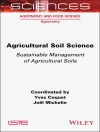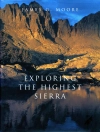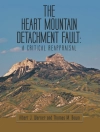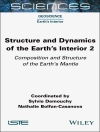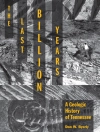This book is based on the papers accepted for presentation during the 3rd Springer Conference of the Arabian Journal of Geosciences (CAJG-3). The book is of interest to all researchers in the fields of geomorphology, sedimentology, and geochemistry. Papers in the field of geomorphology deal with topics related to fault slip and incision rates, soil science, landslides and debris flows, coastal processes, and geoarcheology and geoheritage. Papers in the field of sedimentology cover research studies in stratigraphy and environmental, tectonic, and diagenetic processes, together with studies focusing on the evolutionary, biostratigraphic, and paleo-environmental significance of paleontology. This section also contains papers on marine geosciences, from molecular proxies related to climate to geophysical surveys. The third set of papers focuses on studies related to geochemistry that are focused on sedimentary geochemistry and mineralogical characterization, magmatic and metamorphic processes and products, and the origin and exploration of mineral deposits. This book resumes the current situation related to the abovementioned topics mainly in the Mediterranean realm and its surroundings. The book is of interest to all researchers, practitioners, and students in the fields of geomorphology, sedimentology, and geochemistry.
Содержание
Section 1: Atmospheric Sciences, Meteorology, Climatology, Oceanography.- Section 2: Biogeochemistry, Geobiology, Geoecology, Geoagronomy.- Section 3: Environmental Earth Sciences and Geohazards.- Section 4: Hydrology, Hydrochemistry, Hydrogeology.
Об авторе
Federico Lucci: Dipartimento di Scienze della Terra e Geoambientali, Università degli Studi di Bari Aldo Moro, Italy Federico Lucci holds a Ph.D. degree in Earth Sciences (2010) from Università degli Studi Roma Tre (Italy). Theses and specialties related to the degrees are petrography, multivariate statistic in Earth Sciences, and igneous petrology-structural geology. Since February 2022, he is Researcher of petrography and petrology at the University of Bari “Aldo Moro”, where he is dealing with the teaching course petrography of metamorphic rocks. Since 2008, he was Co-tutor of numerous bachelor, master, and Ph D theses, the bulk of them dealing with the evolution of crystalline basements. Petrographic fieldwork and laboratory activity were always part of the work in each thesis. His research is focused on modelling and timing of magmatic complexes as key constraint for understanding regional tectonics and geodynamic scenarios, through a multidisciplinary approach that integrates field survey, rock fabric characterization, mineral chemistry, geochemistry, geochronology, inverse and forward thermobarometry, and FC-AFC-mixing modeling.
Domenico M. Doronzo: Istituto Nazionale di Geofisica e Vulcanologia, Italy Dr. Domenico M. Doronzo holds a B.Sc., a M.Sc., and a Ph.D. degree (in 2011) in Earth Sciences from Università degli Studi di Bari Aldo Moro, Italy. Theses and specialties related to the degrees are physical volcanology, experimental and computational fluid dynamics, petrology, and natural hazards. Then, he has worked in volcanology and sedimentology, fluid dynamics and combustion, environmental sciences, and rock physics in the USA, Mexico, Spain, and Italy. He is currently Contract Researcher at Istituto Nazionale di Geofisica e Vulcanologia, Italy. Particularly, he has received the Rittmann Medal (in 2014) from Associazione Italiana di Vulcanologia and Istituto Nazionale di Geofisica e Vulcanologia, which is assigned to the best young Italian volcanologist. His research interests focus on integrating theory, field, numerical modeling, experiments, and laboratory to study geological processes and products in volcanic areas (Vulcano, Vesuvio, Campi Flegrei, Etna, Colli Albani, Tenerife, Altiplano Puna, Colima) from fluid dynamic and natural hazard perspectives.
Jasper Knight: University of Witwatersrand, South Africa Professor of Physical Geography, University of the Witwatersrand, Johannesburg, South Africa.
Professor Jasper Knight is Geoscientist with research interests in the spatial and temporal variability in landscape system responses to climate and environmental changes during the late Pleistocene and Holocene, looking at sediments and geomorphology. Jasper Knight’s focus is thematically on glaciers, rivers, coasts, and mountains. Jasper Knight’s focus is geographically on the UK and Ireland, northwest USA, Australia, European Alps, various locations in Asia, and across both southern and northern (Saharan) Africa. Jasper Knight is Editor of three major international journals (Sedimentary Geology, Journal of Maps, Land Degradation & Development). Jasper Knight’s teaching and student supervision focuses on the interconnections between the physical and human environments, landscape change, and environmental resources of the past, present, and future.
Anna Travé :
Universitat de Barcelona, Barcelona. Spain, Spain Anna Travé graduated in Geological Sciences in 1987 and received my Ph.D. in 1992 with the thesis stratigraphy, sedimentology, and geochemistry of stromatolites of the South Pyrenean Eocene Basin. During my Ph.D., Anna Travé did three stays in the isotope laboratory in Liverpool (England) as well as other stays in the USA, England, France, and Italy for work meetings. In 1993, Anna Travé participated in a field campaign in the Salt Range (Pakistan) with the UNESCO-INTAS international correlation program “Early Paleogene Benthos”. During 1994 and 1995, Anna Travé had Postdoctoral Position of the European Community at the University of Montpellier where I began my research in the field of fluid circulation and its relationship with tectonics. The last big contracts with companies have been with EXXONMOBIL and Maersk Oil Qatar. From 2011 to 2021, Anna Travé has supervised 7 finished Ph.D. theses.
Stefan Grab:
School of Geography, Archaeology and Environmental Studies, University of the Witwatersrand, South Africa Stefan Grab is Swiss by birth but grew up in Pietermaritzburg, South Africa. Stefan Grab studied geomorphology at the University of Natal with specialization in periglacial geomorphology. Today, Stefan Grab works in both geomorphology and historical climate change sectors. Stefan Grab’s research regions include southern and eastern Africa, the mid-Atlantic, and Iran (Middle East).
Amjad Kallel: ENIS, University of Sfax, Sfax, Tunisia Dr. Amjad Kallel is currently Associate Professor of Environmental Geology in the Sfax National School of Engineers at the University of Sfax, Tunisia. He holds a B.Eng. in Georesources and Environment (1998) from the University of Sfax (Tunisia) and an M.Sc. degree and a Ph.D. degree in Georesources and Environment (2004) from Hokkaido University (Japan). He joined Venture Business Laboratory (VBL) at Akita University, Japan (2005–2006) as Researcher focusing on refining and recycling technologies for the recovery of rare elements from natural and secondary sources. He has co-organized many prestigious workshops, seminars, and international conferences. In 2016, he joined the Arabian Journal of Geosciences (Springer) and the Euro-Mediterranean Journal for Environmental Integration (Springer) as Chief Editor and Managing Editor, respectively.
Sandeep Panda:
Dr. Panda is currently working as an Assistant Professor at the Department of Industrial Biotechnology, Gujarat Biotechnology University, Gujarat, India. His main research areas include (Bio) hydrometallurgical approaches for metal extraction from primary and secondary resources, Bio-desulphurization of Coal, Bio & Chemical approaches for Mine Water treatment and application of eco-friendly approaches for sustainable mineral-metal waste recycling and management. He has been involved as Principal/Co-Principal Investigator and as Team Member in several R&D and Industrial research projects (at both National and International level) since 2009. As of 2023, he has published 55 International journal papers; 4 book chapters & 5 Editorial books of high quality and impact that have received nearly 1950 citations (h-index – 25). One of his articles published in the journal NATURE related to Tech-Metal supply is receiving much attention and appreciation from global leaders working in his area. His research works have invited the attention of several press and media. He has been featured in the WORLD RANKING OF THE TOP 2% SCIENTISTS in the Domain of Mining & Metallurgy (Sub Domain – Environmental Sciences) as per the Standford University list of top-cited scientists in 2020, 2021, 2022. He is an active member of several prestigious professional bodies and technical/scientific committee member in several reputed international conferences. He has served as a reviewer in over 40 reputed International Journals and is currently serving as: (1) Associate Editor of the Arabian Journal of Geosciences & Euro-Mediterranean Journal of Environmental Integration (Springer Nature) and Editorial Board Member of: (2) Frontiers in Microbiology & Frontiers in Environmental Sciences (Frontiers Publications), (3) Mineral Processing & Extractive Metallurgy Review Journal (Taylor & Francis Group) and (4) Editorial Advisory Board of Detritus Journal (IWWG).
Helder I. Chaminé: School of Engineering (ISEP), Polytechnic of Porto, Portugal Helder I. Chaminé is skilled Geologist and Professor of engineering geosciences at the School of Engineering (ISEP) of the Polytechnic of Porto, with over 32 years of experience in multidisciplinary geosciences research, consultancy, and practice. He studied geological engineering and geology (B.Sc., 1990) at the Universities of Aveiro and Porto (Portugal), respectively. He received his Ph.D. in geology at the University of Porto in 2000 and spent his postdoctoral research in applied geosciences at the University of Aveiro (2001–2003). In 2011, he received his Habilitation (D.Sc.) in geosciences from the University of Aveiro. Before joining the academy, he worked for over a decade on international projects for mining, geotechnics, groundwater industry and/or academia related to geodynamics and regional geology, hard rock hydrogeology and water resources, engineering geosciences and applied geomorphology, rock engineering, and georesources.
Jesus Rodrigo-Comino: University of Granada, Granada, Germany Dr. Jesús Rodrigo Comino, graduated in Geography, currently works as Assistant Professor at the University of Granada. He carried out a thesis with an extraordinary degree award with the work: “The soils of the province of Malaga: Revision according to the classification criteria of FAO-WRB (2006)”. He holds a Master’s degree in Territorial Planning and Geographic Information Systems (2013) from the University of Granada, whose final work was divided into 3 national publications and a monograph. During his predoc stage, he obtained three scholarships for doctoral studies: DAAD (German Academic Exchange Service), La Caixa Foundation, and FPU (Ministry of Education, Spain). During this period, he completed his doctoral thesis between the University of Trier (Germany—2 years-) and Malaga (2 years). He was recently awarded with a Leonardo Grant (BBVA Foundation).
Sami Khomsi: King Abdulaziz University, Jeddah Saudi Arabia and CERTE, University of Carthage, Tunis, Tunisia Sami Khomsi is Structural-Petroleum Geologist. He got his Ph.D. at Tunis University in 2004 and his HDR (Habilitation à Diriger des Recherches) in the same university in 2015. Since 2011, he works in the Department of petroleum geology and sedimentology and in the Geoexploration Department in the faculty of Earth Sciences, King Abdulaziz University, Jeddah, Saudi Arabia. He has also experience in geophysical methods involving fast processing and interpretation of seismic reflexion sections in terms of structural geology-investigation-evaluation of plays, characterization of fractured reservoirs, and subsurface mapping. His main research interests are geometry, kinematics, and dynamics of fold-thrust systems and foreland basins in North Africa, Middle East, and the Mediterranean realm, fractured reservoir analogues, applying structural analysis and subsurface techniques in the characterizations of drillable structures and structural evaluation of traps using regional cross sections at large scale as well as structural subsurface based on regional seismic reflection profiles in different basins.
Santanu Banerjee: Indian Institute of Technology Bombay, Mumbai, India Santanu Banerjee currently works as Professor at the Department of Earth Sciences, Indian Institute of Technology Bombay. He does research in sedimentology and petroleum geology. His research areas include authigenic iron silicates, microbially induced sedimentary structures, basin analysis, provenance interpretations, and alternate potash fertilizer. He is on the editorial board of Journal of Palaeogeography, Minerals, Arabian Journal of Geosciences and Journal of Earth Systems Science.
Broder Merkel: TUBAF, Freiberg, Germany Broder Merkel did Dissertation (Ph D) Dr. rer.nat. as Hydrogeologist (TU München) and Habilitation (Dr. habil) Christian-Albrechts Universität Kiel. Broder Merkel is Full Professor for Hydrogeology at TUBAF (1993–2015) hydrogeology, hydrochemistry, modeling chemical thermodynamics and reactive transport, geo-statistics, GIS, and remote sensing; Dean of the Faculty Geoscience, Geotechnics and Mining; DFG Liaison Officer of TUBAF; Vice Rector of TUBAF; and Head of the Scientific Diving Center of TUBAF. Broder Merkel’s field work was in Bolivia, China, Chile, Czech Republic, Iraq, Iran, Israel, Italy, Jordan, Hungary, Mexico, Mozambique, Namibia, Palestine, Russia, Spain, and USA. Broder Merkel has organization of 7 International Conferences Uranium Mining and Hydrogeology.
Haroun Chenchouni: Higher National School of Forests, Khenchela, Algeria Dr. Haroun Chenchouni is Associate Professor and Research Scientist (Ecologist) at the Higher National School of Forests (Khenchela, Algeria). He is Former Associate Professor at the University of Tebessa (Algeria). He holds a M.Sc. (Magister) in Dryland Ecology from the University of Ouargla (Algeria) and a doctorate degree in Ecology and Environment from the University of Batna. He graduated as Engineer in Plant Ecology and Forest Ecosystems from the Department of Biological Sciences (University of Batna, Algeria). His research interests are fairly broad; he uses statistical modeling approaches to understand how natural environments, mainly climatic and edaphic factors, and anthropogenic perturbations influence biological interactions, shape trends in population dynamics, and influence community diversity. He is also involved in national and international research projects. In 2017, he joined the Arabian Journal of Geosciences (AJGS) as Associate Editor.






